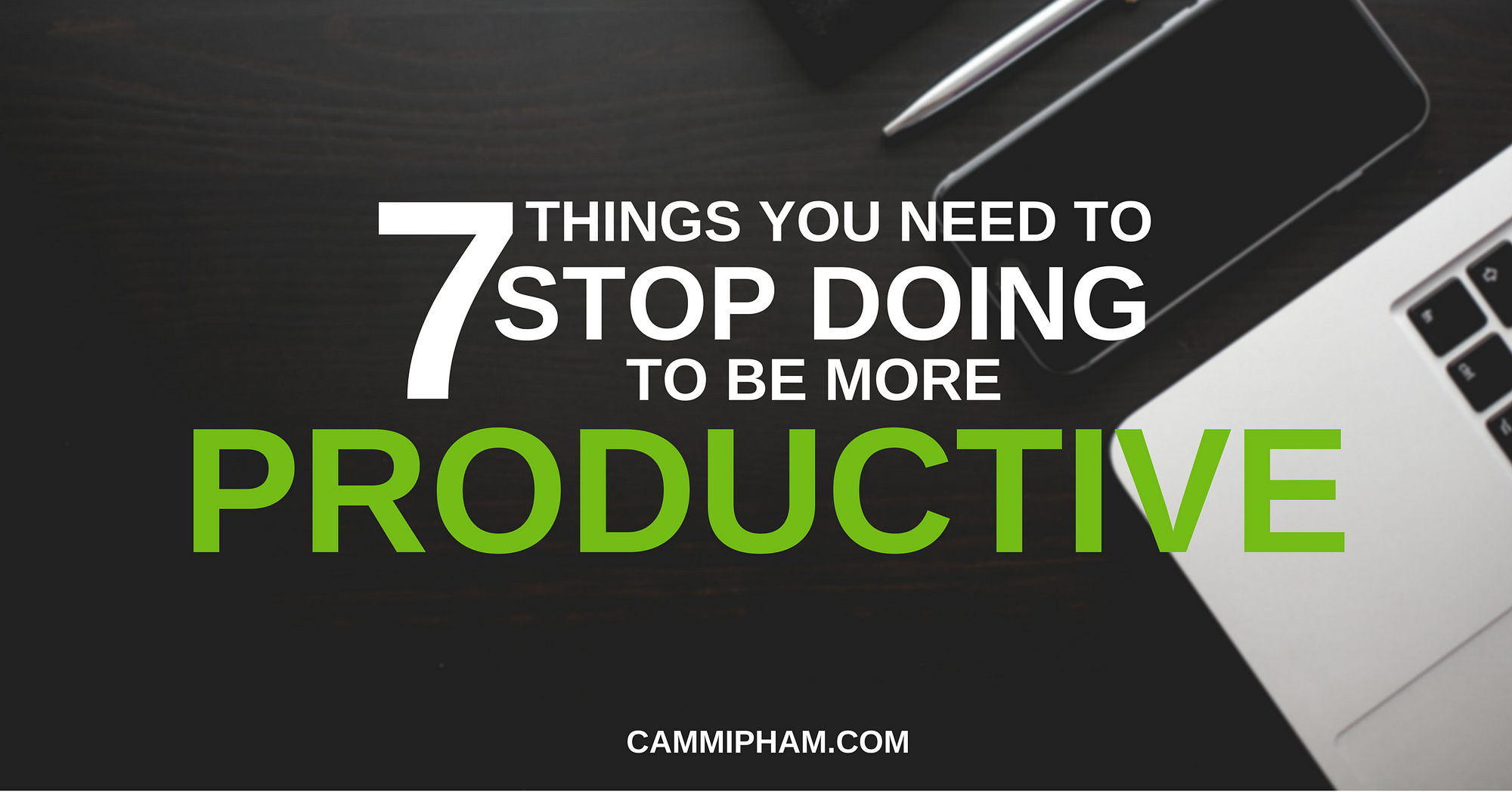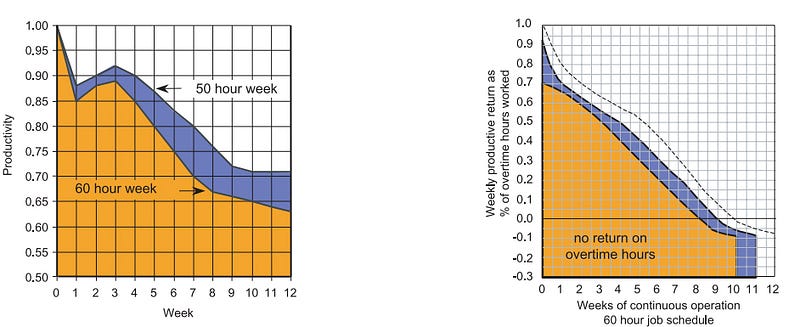
BY CAMMI PHAM — First appeared on my personal blog
When I was 17 years old, I used to work and study for about 20 hours a day. I went to school, did my homework during breaks and managed a not-for-profit organization at night. At that time, working hard landed me countless national campaigns, opportunities to work with A-list organizations and a successful career. As I got older, I started thinking differently. I realized that working harder is not always the right path to success. Sometimes, working less can actually produce better results.
Consider a small business owner, who works non-stop. However, working hard won’t help him compete with his multi-million competitors. Time is a limited commodity. An entrepreneur can work 24 hours a day and 7 days a week (the most amount of time anyone can work, really). His or her competitor can always spend more money, build a bigger team and spend a lot more time on the same project. Then why have small startups accomplished things that larger corporations couldn’t? Facebook bought Instagram, a 13-employee company for a billion dollars. Snapchat, a young startup with 30 employees is turning down offers from tech giants Facebook and Google. Part of their successes were based on luck — the rest is based on efficiency.
The key to success is not hard working but smart working.
Here are 7 I things I stopped doing to become more productive.
Have you ever wondered where the 40-hour work week came from? In 1926, Henry Ford, American industrialist and founder of Ford Motor Company, conducted experiments with interesting results: when you decrease your daily working hours from 10 to 8, and shorten the work week from 6 days to 5, your productivity increases.

The more you work, the less effective and productive you are going to become over both short and long term. “Scheduled Overtime Effect on Construction Projects”, a report issued by The Business Roundtable in 1980 states.
“Where a work schedule of 60 or more hours per week is continued longer than about two months, the cumulative effect of decreased productivity will cause a delay in the completion date beyond that which could have been realized with the same crew size on a 40-hour week.”
Source: Calculating Loss of Productivity Due to Overtime Using Published Charts — Fact or Fiction
In an article for AlterNet, editor Sara Robinson referenced research conducted by the US military that revealed that “losing one hour of sleep per night for a week will cause a level of cognitive degradation equivalent to a .10 blood alcohol level.” You can get fired for coming to work drunk, but it is deemed acceptable to pull an all-nighter.
Irrespective of how well you were able to get on with your day after that most recent night without sleep, it is unlikely that you felt especially upbeat and joyous about the world. Your more-negative-than-usual perspective will have resulted from a generalized low mood, which is a normal consequence of being overtired. More important than just the mood, this mind-set is often accompanied by decreases in willingness to think and act proactively, control impulses, feel positive about yourself, empathize with others, and generally use emotional intelligence.
Source: The Secret World of Sleep: The Surprising Science of the Mind at Rest
It’s important for us not to overwork ourselves and get enough sleep to maintain a high level of productivity. Next time you’re wondering why you may not be working productively, the reason may be simple as you being one of 70% of people who doesn’t get enough sleep.
Did you know?
Leonardo da Vinci took multiple naps a day and slept less at night.
The French Emperor Napoleon was not shy about taking naps. He indulged daily.
Though Thomas Edison was embarrassed about his napping habit, he also practiced his ritual daily.
Eleanor Roosevelt, the wife of President Franklin D. Roosevelt, used to boost her energy by napping before speaking engagements.
Gene Autry, “the Singing Cowboy,” routinely took naps in his dressing room between performances.
President John F. Kennedy ate his lunch in bed and then settled in for a nap—every day!
Oil industrialist and philanthropist John D. Rockefeller napped every afternoon in his office.
Winston Churchill’s afternoon nap was a non-negotiable. He believed it helped him get twice as much done each day.
President Lyndon B. Johnson took a nap every afternoon at 3:30 p.m. in order to break his day up into “two shifts.”
Though criticized for it, President Ronald Reagan famously took naps as well.
Source: 5 Reasons Why You Should Take a Nap Every Day — Michael Hyatt
On a personal note, since I started getting at least 7 to 8 hours of sleep a day, I’ve noticed a change: I became a lot more productive and got a lot more work done than when I worked 16 hours a day. Who knew sleeping was such a great tool for marketers?
2. Don’t say “yes” too often
According to the Pareto Principle, 20% of the effort produces 80% of the results; however, 20% of the results consumes 80% of the effort. Instead of working harder, we should focus primarily on those efforts that produce 80% of the results and forgo the rest. We will have more time to focus on the most important tasks. We should stop saying “yes” to tasks that bring low or almost no result.
“The difference between successful people and very successful people is that very successful people say “no” to almost everything.” — Warren Buffet.
This begs a question: what should you say “yes” and what should you say “no” to? If you can’t figure if something is going to be worth your time, consider running a simple split test. Track everything you do and optimize if it is possible.
Most of us say yes more often than we should because it is so much easier than saying no. Nobody wants to be the bad guy.

The students who told themselves “I can’t eat X” chose to eat the chocolate candy bar 61% of the time. Meanwhile, the students who told themselves “I don’t eat X” chose to eat the chocolate candy bars only 36% of the time. This simple change in terminology significantly improved the odds that each person would make a more healthy food choice.
Next time you need to avoid saying yes, say “I don’t”.
Another great trick to avoid activities that don’t add enough value into your life is the 20-second rule: give yourself 20 seconds longer for activities you shouldn’t be doing.
Lower the activation energy for habits you want to adopt and raise it for habits you want to avoid. The more we can lower or even eliminate the activation energy for our desired actions, the more we enhance our ability to jump-start positive change.
Source: The Happiness Advantage: The Seven Principles of Positive Psychology That Fuel Success and Performance at Work
A "must" read!








